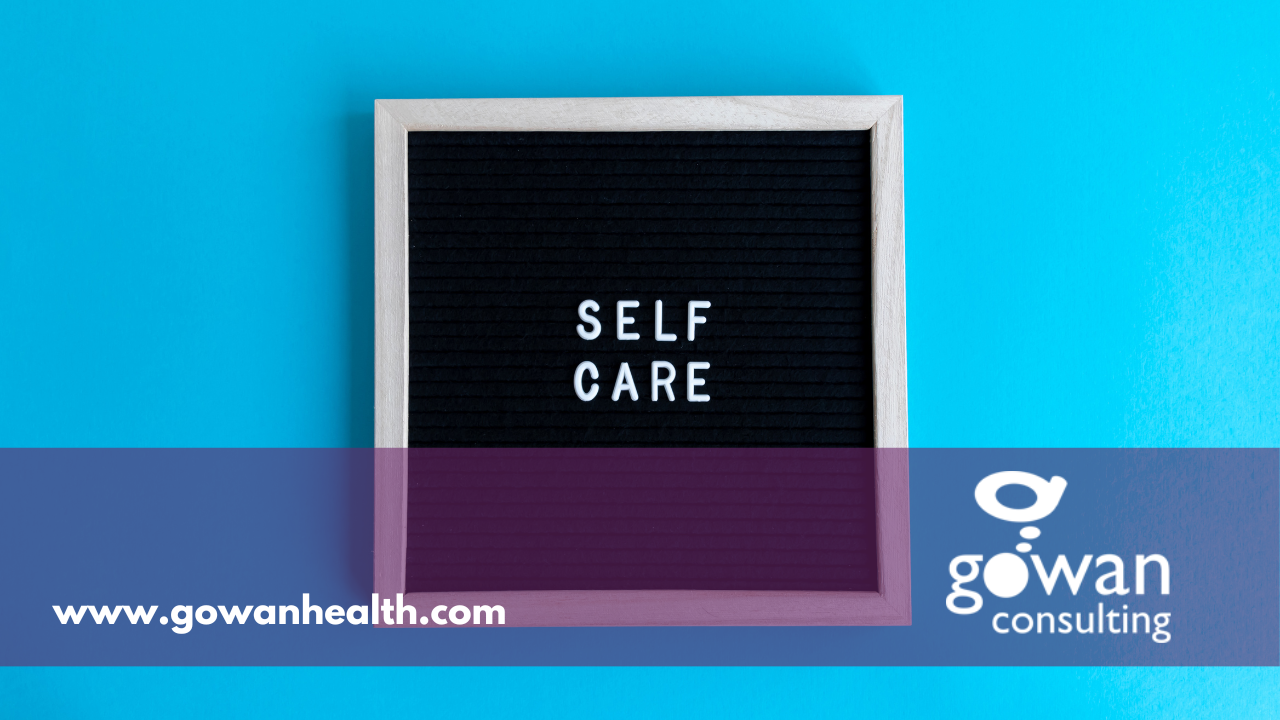The Essential Practice of Self-Care: How to Nurture Well-being in the Workplace
Jul 20, 2023
In today's fast-paced and demanding work environment, it's easy for employees to become overwhelmed, stressed, and burnt out. Prioritizing self-care is essential to maintain overall well-being, enhance productivity, and foster a healthy work-life balance. Self-care practices vary from person to person, encompassing physical, emotional, and psychological aspects of our lives. It involves consciously and intentionally taking care of oneself to maintain and improve health and prevent burnout. From employees seeking to maintain their wellbeing in the workplace to those who are off work aiming to restore their quality of life, considering self-care is important for all employees in any stage of the mental health continuum.
Creating Your Self-Care Plan
Self-care is a personal journey that involves engaging in activities that bring joy and rejuvenation. What one person may consider self-care may have the opposite effect on another, so it’s important to recognize what works for you. Self-care doesn’t always have to be elaborate – sometimes it’s as simple as wearing something that makes you feel good or taking a daily shower. The following are common forms of self-care:
Physical Self-Care:
- Engaging in exercise, whether it's walking, playing sports, or working out.
- Indulging in spa treatments, such as massages, manicures, or pedicures.
- Wearing clothes that make you feel good and confident.
- Prioritizing personal hygiene through regular showers or baths.
- Engaging in simple relaxation techniques like deep breathing or stretching.
- Getting regular check-ups with your doctor to look after your overall health.
Emotional/Spiritual Self-Care:
- Practicing mindfulness to acknowledge and accept emotions without judgment.
- Reading a good book.
- Spending quality time with loved ones, friends, or pets.
- Offering self-compassion and giving yourself compliments.
- Connecting with nature through walks, hikes, or simply enjoying outdoor settings.
- Engaging in meditation or other spiritual practices.
Psychological Self-Care:
- Learning to say "no" to extra or unnecessary responsibilities.
- Engaging in self-reflection through journaling or introspection.
- Participating in games or puzzles to stimulate the mind.
- Acquiring new skills or knowledge in areas of interest.
To develop a personalized self-care plan, start by choosing one thing that you can incorporate into your daily routine to improve self-care. Consider the following to find a self-care plan that works for you:
- Take a moment each day to check in with yourself and assess your well-being.
- Reflect on why self-care is essential for you.
- Commit to one specific self-care activity that you can implement today.
The Benefits of Self-Care in the Workplace:
Prioritizing self-care in the workplace yields numerous benefits for both employees and employers:
- Enhanced well-being: By taking care of their physical, mental, and emotional health, employees experience reduced stress levels, increased resilience, improved mood, and overall well-being.
- Increased productivity: Engaging in self-care activities helps employees recharge and maintain high levels of productivity. By preventing burnout and promoting work-life balance, self-care enhances focus, creativity, and efficiency.
- Reduced absenteeism and turnover: When employees prioritize self-care, they are less likely to experience chronic health issues, stress-related illnesses, or burnout, leading to lower rates of absenteeism and turnover.
- Positive workplace culture: A workplace that values and encourages self-care fosters a supportive environment where employees feel valued and empowered, leading to higher job satisfaction and employee morale.
How Employers Can Help with Self-Care
Research shows that managers have a large influence on the mental health of employees. For employees who are burnt out and struggling with the responsibilities of their work and home lives, actions by employers can be the first step to deliver the help they need. Here are some ways employers can support employee self-care:
Employee Support:
- Regularly check in with employees to ensure they are taking care of themselves.
- Promote awareness and utilization of the Employee Assistance Program (EAP) for additional support options.
- Provide mental health resources or mental health crisis lines for employees whose self-care is in serious decline.
Integrating Self-Care into the Workday:
- Encourage employees to take breaks and have lunches away from their desks.
- Incorporate walking meetings to encourage movement and fresh air.
- Remind employees to practice breathing exercises or mindfulness throughout the day.
- Assist with time management strategies and mindful delegation to reduce stress.
Early Intervention and Occupational Therapy:
- If an employee is struggling due to a lack of self-care and other health concerns, early intervention is crucial.
- Occupational Therapists can provide mental health reactivation programming to help employees who are off work establish a routine that promote self-care, productivity, and leisure.
- Training on mental health can be provided to employees to help them stay at work. Contact Gowan Consulting to learn about customized group training or make a referral for individualized support such as accommodation assessments or job coaching.
Why Is Self-Care Important in Occupational Therapy?
Self-care is crucial in Occupational Therapy as it promotes independence, functionality, and overall well-being. Occupational Therapists recognize the interconnectedness of physical, mental, and emotional health, and self-care addresses these aspects comprehensively. By integrating self-care practices into therapy, Occupational Therapists help individuals regain or improve their ability to perform daily activities, manage chronic conditions, and promote emotional well-being. Self-care acts as a preventive measure, sustains progress achieved in therapy, and empowers individuals to take an active role in their own well-being. Ultimately, self-care is an integral part of Occupational Therapy's holistic approach, contributing to improved outcomes and a higher quality of life for individuals.

